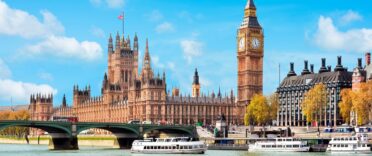Update 15/03/2011. For the latest on what will be in the Budget on 23rd March 2011 click here.
-------------------------------------------------------------------------------------------------------------------
Predictions updated daily right up until the Emergency Budget on 22nd June, as and when more information is leaked or speculated upon. So make sure you check back. When we do make a change we will also announce it via our Twitter page.
Also, once the dust has settled after the Budget don't forget to come back and read our analysis on how it will affect you.
Predictions
(Key points are highlighted in blue)
INCOME TAX AND NATIONAL INSURANCE
Increases to both income tax and national insurance while reducing personal allowances are the biggest revenue generators for the Treasury
However the later option is out of the window following the Lib Dems’ proposals to raise the personal income tax allowance to £10,000, for the benefit of low and middle-income workers. This will be announced on 22nd June but, however, likely take effect from April 2011 but the general consensus is that the increase will happen in stages.
The parties have both agreed to keep Gordon Brown’s 1p National Insurance rise for individuals next year, though not for businesses as part of the coalition agreement. So from next April NIC rates will be 13.8% for employers, 9% for the self-employed, 12% for employees and 2% on top earnings. The starting threshold for employees will rise to £5,720 so no one earning less than £20,000 will pay more. The starting threshold for employers will increase to £6,812.
In light of the proposed employee NIC increases some employers are setting up salary sacrifice schemes which allow employees to pay less NI, as their earnings are less, but receive a pension benefit or share save instead.
VAT
There is speculation that VAT could increase from 17.5 to 20% to fund the income tax cuts. The UK currently enjoys the fourth lowest VAT rate in Europe (see my post Latest report fuels talk of a post-election VAT increase). Increasing VAT by 2.5% would generate an extra £1 billion a month for the Treasury which would also go some way to help reduce the UK deficit. The downside is that increasing VAT will drive up inflation in the short term. The answer could be to phase in any increase to lessen the impact on inflation which would also have the short term benefit of bringing forward planned consumer expenditure.
The likelihood is that VAT will be increased to 20% from 2011.
CAPITAL GAINS TAX
Capital Gains Tax (CGT) is one of the smaller revenue generators, by comparison, for the Treasury. However, the government has already announced their intention to increase the CGT rate. Accordingly, the CGT rate is expected to rise from 18% to 40% but when this will be implemented is unknown. Timing-wise it could be effective from the date of the emergency Budget or retrospectively applied (i.e backdated to 6th April 2010). This would set a precedent so some analysts predict that changes will only come into effect from 6th April 2011. In addition, how the increase will be implemented is unknown. Will the flat rate be increased across the board from 18% to a higher rate closer to 40% or will individuals be taxed in line with their marginal income tax rate, as they were previously? Personally I favour the later. In addition, there is always the possibility that some form of indexation will be brought back so that long-term investors are not penalised. If this is coupled with a future staggered rise in CGT it would result in a controlled sell off, not a fire sale, of investments ahead of the CGT rate change. This would have the benefit of generating revenue for the Treasury as CGT is only applied on realised gains.
INHERITANCE TAX
The inheritance tax threshold is likely to remain unchanged.
PENSIONS
The earnings link for the basic state pension will be restored in April 2011. The parties promised a “triple guarantee”: that pensions would be raised by the higher of earnings, prices or 2.5pc, as proposed by the Liberal Democrats’’.
The date at which the state pension age starts to rise to 66 will be set, although it will not be sooner than 2016 for men and 2020 for women.
The rules requiring compulsory annuity purchase at 75 will be scrapped. How this will work and when the change will come into effect is unknown.
The coalition also committed to establishing an independent commission to review the long-term affordability of public sector pensions, while protecting accrued rights.
There has been no announcement yet on pensions tax relief. The Liberal Democrats had pledged to abolish all higher-rate relief, limiting the tax benefit to the basic rate. Some commentators think this likely.
BENEFITS AND TAX CREDITS
The parties have agreed that reductions could be made to tax credits for higher earners.
They also plan to end all existing welfare to work programmes and replace them with a single scheme to help all unemployed people get back into work.
CHILD TRUST FUNDS
The government has announced that child trust funds will be scaled back from £250 to £50 in August and abandoned completely in January 2011.
GREEN TAXES
Plans have already been announced to replace air passenger duty (APD) to an aviation duty (per plane duty) in line with new Government proposals. The climate change levy is to be reformed to a carbon levy.
The Rumour Mill

(the latest updates are in green)
- Income Tax
Update 16th June - PricewaterhouseCoopers LLP (PWC) unveiled their Budget predictions today:
Personal allowance will increase to £10,100 which will be phased in from 6th April – which is in line with Money to the Masses prediction above
Update 22nd June - The Chancellor will increase tax-free personal allowances by £1,000 to £7,475 according to the Daily Express
- National Insurance
Updated 21st June - The BBC report that it is expected the employers' threshold for NI will rise slightly - by £21 - and Universities Minister David Willetts confirmed there would be measures to boost firms outside of the South East of England. This is expected to take the form of a three-year scheme to exempt start-up firms elsewhere in the UK from paying NI for the first 10 people employed.
- CGT
Update 2nd June: During a BBC Radio 4 interview today Nick Clegg hinted that proposed measures to increase CGT will have to be tempered. During the interview he declined to be drawn on exactly what form concessions might take but indicated work is under way and that some form of tapering is among options being considered. This would seem to add weight to my prediction above.
Update 7th June – there have been anecdotal reports in the papers that we could see an age exemption to the proposed increase in CGT. One proposal apparently being considered is to exempt the over-65s from the new higher rate. However, while the Government may well include generous exemptions campaigners are still pushing for taper relief instead because they say it will be simpler and easier to steer through Parliament. If a number of exemptions were made there is a danger that Tory backbenchers will push for these to be extended to other groups. So my money is still on some form of indexation.
Update 14th June - Citywire today have speculated about a rumoured reduction to the annual CGT exemption band – fearing a drop from £10,200 to around £2,000 (click here to see story). But they go on to say that any such change will penalise individuals less well-off, while society’s wealthiest are able to avoid incurring a costly bill. I tend to agree with this point and think that it would prove an unpopular move politically to reduce the CGT allowance across the board. So if I had to nail my colours to a mast I think it unlikely that the allowance will be reduced universally, but I wouldn't be surprised if it is frozen going forwards.
Update 16th June - Price Water House Cooper’s predict a possible differential tax rates depending on whether an assets has been owned for the short or long term. It is likely that any new short-term rate, which could apply to assets held for less than two years, could take effect immediately from Budget Day– which is in line with Money to the Masses prediction above.
In its simplest form a long-term rate of circa 30% could be applied to assets held for more than two years, and is likely to be introduced in April 2011
In order to continue to encourage entrepreneurial activity CGT rate PWC are anticipating an extension to the existing definition of business asset will be set somewhere between 10 – 20%
PWC do not expect any change to the individual allowance of £10,100 for tax free capital gains each year– which is in line with Money to the Masses prediction above.
- VAT
Update 10th June - The Telegraph today speculate that a rise in VAT to 20 percent is conceivable which would still leave the rate a little below the European average. They go on to say that the impact of a VAT increase on consumer demand and inflation could be lessened if it the change is phased in. This would bring forward expenditure, thus supporting the recovery over the short term. Adequate notice would also give manufacturers and retailers time to adjust so as to maintain present pricing points. So basically reinforcing our prediction above.
Update 16th June - PWC expect VAT to increase to 20% with effect from 6th April 2011 – which is in line with Money to the Masses prediction above.
- IHT
Update 16th June - PWC don’t expect any changes - which is in line with Money to the Masses prediction above
- Pensions
Update 16th June - PWC believe there is a small chance that dividend tax credits for pension funds will be reinstated over time, which would bring some relief to a pensions industry in which employer motivation to provide defined benefit pensions has all but disappeared
Updated 21st June - Public sector workers are facing a steep rise in their pension contributions in order to help pay down Britain’s record deficit according to The Daily Telegraph (click here to view the story)
- Benefits and Tax Credits
Update 16th June - PWC predict a cap on Tax Credit system based on household income - which is in line with Money to the Masses prediction above
Child Benefit will not be means tested
- Savings
Update 16th June - PWC say that there might be an increase in the yearly personal ISA allowance plus a possible introduction system of tax incentivised bonds
- Lifestyle taxes
Update 16th June - PWC believe taxes on alcohol and tobacco to go up – surprise surprise.
- Council Tax
Update 21st June - The government is to press ahead with its plans to freeze council tax in England next year despite the budget deficit, according to the BBC.






Great article – many thanks
Cant see how this is going to drastically change eveeryones life as predicted by the pessimists.
Just hope any VAT rise is after September 1st thats all.
The fact is, we are where we are. Not withstanding, some items on this list were daft as to have had them in place to start with. No one’s ever explained the logic of the CTF or tax credits for higher earners. That the threshold on IHT should remain at its current level is a triumph of commonsense. Personally, I believe there is plenty of scope for increasing VAT – why oh why are books and newspapers exempt.
B Franklin.
http://inherits.info